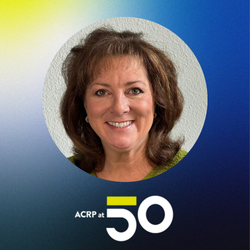There continues to be a shared responsibility across sites and sponsors to align with the recently updated ICH E6(R3) guideline for Good Clinical Practice, which is designed to foster a culture of quality as clinical research methods evolve. Understanding the guideline's Quality by Design (QbD) and Critical to Quality (CtQ) elements is key to implementing its tenets.
Lynn D. Van Dermark, RN, BSN, MBA, RAC, FACRP, shares her pride in contributing to ACRP’s legacy of building training systems and defining standards that elevate excellence in clinical research.
Project management principles can help ensure the success of work at all scales from strategic organizational initiatives to day-to-day tasks. Workflow and productivity can be optimized using a variety of project management tools. This enables clinical research professionals […]
On September 17, 2024, the Office of Research Integrity (ORI) in the U.S. Department of Health and Human Services published a long-awaited revision of the Public Health Service (PHS) Policies on Research Misconduct (42 CFR 93 in the Code of Federal Regulations). The new rule modernizes the federal framework that governs how institutions handle allegations of fabrication, falsification, and plagiarism in PHS-funded research.
Decentralized clinical trials (DCTs) have evolved from a future concept to a present-day necessity. As protocols become more complex, competition for funding increases, and recruitment challenges persist, traditional site-centric models often fail to keep pace.




